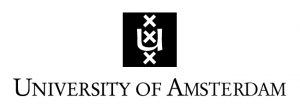Trauma Studies in the Digital Age:
The Impact of Social Media on Trauma Processing in Life Narratives and in Trauma Literature: the Case of Hungary
(2016–2018)
The TRAPRODIG research project was an individual Marie Sklodowska-Curie research fellowship carried out by dr. Anna Menyhért at the University of Amsterdam, at the department of Slavonic studies and the Amsterdam School for Heritage, Memory, and Material Culture, between 2016–2018. The project was supervised by Prof. Ellen Rutten.
The aim of Menyhért’s research project was to analyze cultural and literary trauma processing in the framework of digital memory studies, particularly in relation to the similarities and differences of collective trauma processing and trauma literature in modern democracies and dictatorships. Her project has a special transcultural focus on the case of Hungary as a post-socialist country with unresolved twentieth century collective traumas and on life narratives of Hungarian migrants in Europe.
The interdisciplinary scientific goal of the project was to introduce the concept of “digital (cultural and literary) trauma processing” and develop the scientific field of “digital trauma studies” at the intersection of digital memory studies, digital media studies and cultural trauma studies. The TRAPRODIG project contributed to a better understanding of the link of current cultural developments to the collective traumas of the past in post-socialist countries. It drew attention to the voices of contemporary migrants within the European cultural framework and it added significantly to the mapping of trauma literature and life narratives in Europe by analyzing how the 21st century digital environment influences both personal and collective trauma processing in local, national and trans-national communities within Europe.
The four interrelated subthemes of the project covered areas where digital trauma processing occurs and which can be analyzed in a humanities/cultural studies/literary studies framework.
1) Personal trauma and digital identity in relation to social media as an online community: coping with illness, loss, grief, virtual cemeteries, the role of online support groups;
2) Transcultural trauma related to migration, forced migration, cultural shock and transnational (online) writing related to literary texts, blogs and Facebook groups;
3) Social media and the painful past: analyzing collective trauma processing online as well as collective memory and national identity formation; with a special – but not exclusive – focus on Post-Soviet countries, the East-Central European region and Hungary;
4) Literary (printed, offline) texts and (digital) trauma processing, referring to online reading groups, reviews in personal blogs, literary websites interpreting trauma texts.
“Theoretical background: out of the three phases of recovering from Post Traumatic Stress Disorder as defined in the psychological field (1. reconstituting the survivor’s feeling of security; 2. reconstructing the trauma narrative; 3. re-establishing the relationships of the survivor, integrating him/her in the community), in the pre-digital era mainly the second phase was of interest for literary and cultural trauma studies, that is, the interpretation of texts produced during trauma processing and recovery and the investigation of (adequate) reading strategies. The digital era elevated the third phase further into the public sphere, with instant response and dialogue possible in social media. Sharing traumatic experiences online (in blogs, social networking groups) and reacting to them (in comments and chat functions) eliminates the element of silence thought to be inherent in trauma: on one hand as its basic characteristic feature, meaning the victim is unable to speak about it, on the other hand silencing as the cause of secondary traumatization, when others do not or are not able to listen to the victim, or as an official oppressive practice by a totalitarian regime. As silence has been considered a crucial element in definitions of trauma, this change in focus has the potential to redefine trauma and reassess the field of trauma studies within a framework of digital memory and digital media studies. As a consequence, digitally mediated trauma processing could be the way to clear (ideologically) blocked avenues (to thaw “frozen currents”) to the traumatic past and induce social and cultural change, or at least to allow for the existence of parallel or multiple versions of traumatic history: official, rigid versions, determined by oppressive past and present-day ideologies, as opposed to other versions, created by communities, the arts and civil society, that are versatile and mobile, emotionally active and capable of activating trauma processing reactions.” (Anna Menyhért)


